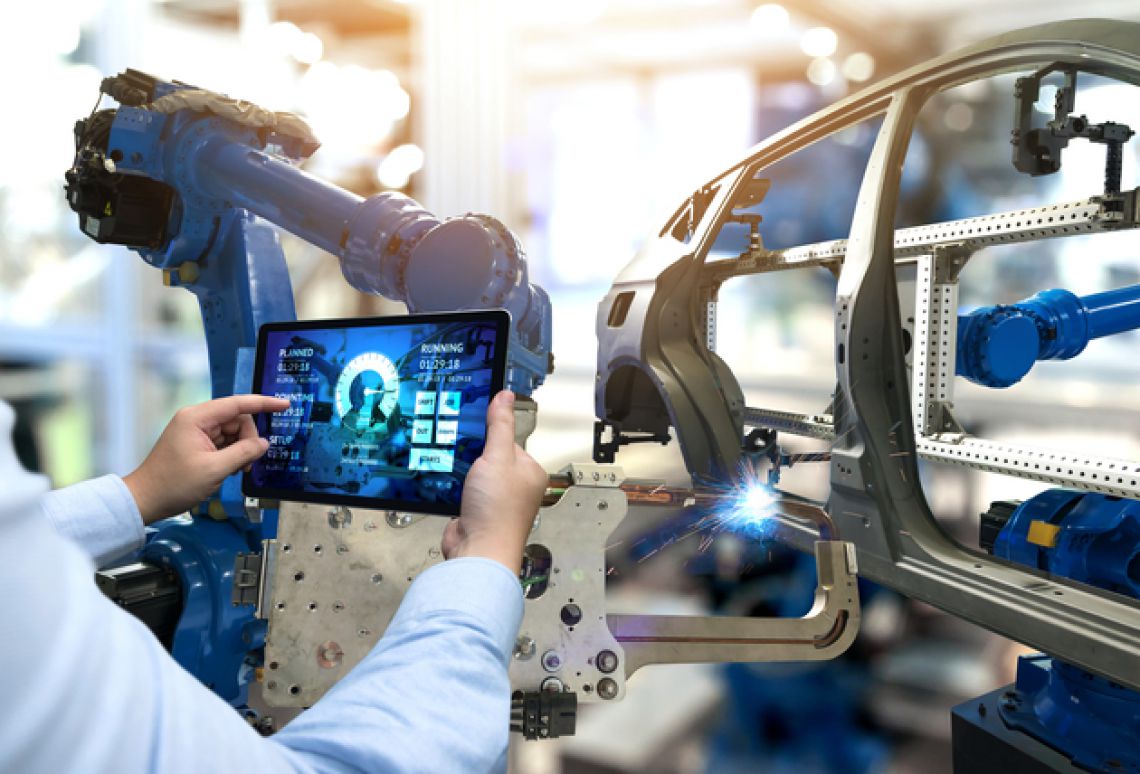-
1 comment
Manufacturing processes and products can benefit from advanced digital technologies and state-of-the-art Artificial Intelligence (AI) solutions. The integration of Artificial Intelligence in the various stages of a production process not only can supply the markets with better and cost effective goods but also can improve the conditions and quality of human labour.
A PwC paper identifies the potential value from exploitation of AI as being $15.7 trillion in 2030. This would be through impacts on productivity, personalisation of products, better use of time, and quality improvements. An expected 55% of GDP gains from AI would come from labour productivity improvements. A study by McKinsey gives some examples on how AI can be used in manufacturing such as predictive maintenance, cost reduction, automated testing, improved quality of products and supply chain management. Microsoft produced a report in May 2019 quoting figures that AI will add $3.7 trillion dollars to the manufacturing sector by 2035.
/futurium/en/file/aiinmanu6143848534jpgaiin_manu_61438_48534.jpg

As digital transformation is already affecting the greatest share of European industry, the European Commission aims to support capitalising on its potential to the fullest, including the potential of AI. Two recently launched calls (ICT-38-2020 and DT-ICT-03-2020) specifically address AI in manufacturing through actions of research, innovation and experimentation:
Artificial Intelligence for manufacturing
Seizing AI opportunities is essential for Europe’s mid and long-term competitiveness. The manufacturing sector provides one of the most relevant examples. The challenge is to integrate AI technologies with advanced manufacturing technologies and systems in order to boost their potential in the manufacturing and process industries to improve the quality of products and processes. At the same time, it is important to consider how humans and AI will work together in optimal complementarity.
The EC is now investing in research and innovation actions that will build on the current state-of-the-art to:
- Integrate AI technologies in the manufacturing domain
- Develop innovative concepts and tools of AI application in manufacturing
- Build on the AI4EU platform, where relevant
- Promote the effective collaboration between humans and AI
- Ensure the application of Trustworthy AI
- Demonstrate technologies and solutions in different manufacturing cases
Innovation for Manufacturing SMEs (I4MS)
The EU supports the widespread uptake of digital technologies in manufacturing business operations. Since 2013, the I4MS initiative has helped SMEs and mid-caps to improve their products, business processes, and business models via digital technologies. Launching the 4th phase of this initiative, Digital Innovation Hubs are called for that strengthen European SMEs and mid-caps by experimenting and testing Artificial Intelligence techniques in manufacturing. Experiments should aggregate and analyse data from multiple sources.
In addition to AI, the call invites for testing and experimentation actions in other areas, such as:
- Smart modelling, simulation, and optimisation for digital twins
- Laser based equipment in advanced and additive manufacturing
- Cognitive autonomous systems and human-robot interaction
The participation of Digital Innovation Hubs in so far underrepresented regions is particularly encouraged.
More on the call DT-ICT-03-2020
Learn more on these topics by:
- Browsing the material from the Workshop on Artificial Intelligence for Manufacturing held in July 2019
- Registering for the Digitising European Industry Stakeholder Forum 2019
- Visiting this page again to find more about the informative webinar on ICT-38-2020 scheduled for November 2019


